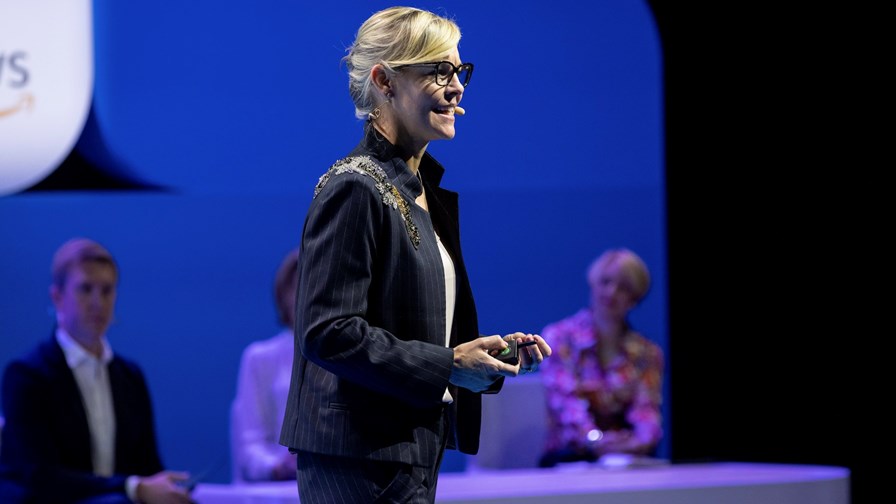
Keri Gilder, CEO at Colt and chair of the Inclusion and Diversity Council at the TM Forum (picture courtesy of the TM Forum)
- Keri Gilder is the CEO of Colt Technology Services
- She is also the TM Forum diversity and inclusion chair
- For the past two years, Gilder has been leading a deep dive into the industry’s staffing and talent trends
- The results do not paint a pretty picture
- “We are heading towards a retirement cliff,” she warns
Copenhagen – Digital Transformation World 2022 – The telecom industry is hurtling towards a staffing and skills precipice at a frightening pace, and truly embracing diversity and inclusion in recruitment and human resources strategies looks to be the only way to avoid a calamity, a somewhat sombre Keri Gilder told attendees here in Copenhagen this week.
As well as being the CEO at Colt Technology Services, Gilder is the chair of the Inclusion and Diversity Council at the TM Forum, organiser of the Digital Transformation World event. She has spent the past two years leading a project that has gathered 180,000 data points from more than 11,000 industry professionals to help develop the Inclusion and Diversity Score (IDS), a “multi-dimensional benchmarking tool co-created by TM Forum members to help digital service businesses win the war on talent by retaining, nurturing and improving both talent and culture through greater diversity and inclusion.”
The move appears to be very timely because, according to Gilder, the telecom sector, along with many other verticals (which are often looking for the same kind of tech talent as telecom industry firms) is about to hit a human resources brick wall.
One of the big problems is the average age of the people employed in the operations departments of telcos. “Just look around – we're facing a retirement cliff in our industry… The great resignation is upon us,” noted Gilder, looking around the keynote auditorium at the Bella Centre in Copenhagen. No one argued that she was wrong. (It was an issue also hinted at by Jon James, CEO of Danish service provider Nuuday, which has a business underpinned by an IT system that only a team nearing to retirement knows how to operate.)
And the industry, and the demands put upon it by customers, is changing fast. “We heard today about platforms, about open systems, and we heard that our industry is in a downward spiral and if we don't do something about this, we're all going to be looking for a different industry,” she warned.
“Other industries have the exact same problem and require the exact same talent. So this is no longer a within-industry problem – this is an industry problem. These external forces are a massive threat to our operating models, and we have to change the way we organise and change the way we think about people,” added Gilder.
The IDS is something that can “enable real change and enable real business outcomes”, she explained. “We've done the heavy lifting [and] we've built a metric that delivers real results. I know you have a talent problem – we all do. And I know that your HR teams are struggling – they all are.”
By using the IDS just like any other metric in the industry – such as the net promoter score (NPS) – “we will no longer have to close our eyes and try to interpret and translate our talent problem”.
There’s a lot to the IDS – you can read all about it in the full TM Forum announcement.
And it’s clear from people here at the event that this is a real concern – it’s not just the well-known problem of trying to hire the same people as the hyperscalers to beef up the cloud-related skills set.
“When we talk to our members, they all talk about people and talent and it’s all about the three Rs – recruitment, retention and reskilling,” noted Nik Willets, CEO at the TM Forum.
“And the industry has a lot to do on diversity…”
With the IDS now launched and ready to use, it’ll be interesting to see which companies adopt it in the coming year and track whether it can address the looming skills and retention crisis.
- Ray Le Maistre, Editorial Director, TelecomTV
Email Newsletters
Sign up to receive TelecomTV's top news and videos, plus exclusive subscriber-only content direct to your inbox.




